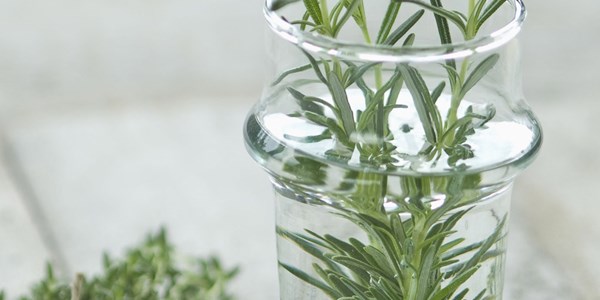Healthy Living
Rosemary aroma may improve memory─── 12:30 Fri, 29 Apr 2016

Scientists have linked the scent of the rosemary plant to better memory.
If your memory isn't as good as it used to be, you may want to start growing some rosemary plants. Researchers at Northumbria University have found that merely being in a rosemary-scented room could improve memory by 15 per cent among older people.
Rosemary, a woody, perennial herb with fragrant evergreen leaves, is a good source of vitamin A, and has long been valued for its therapeutic scent as well as culinary value.
To test the effects of rosemary on memory retention, researchers randomly allocated 150 people over the age of 65 to rooms with either a rosemary aroma, lavender aroma or no scent at all.
The participants were then given a simple memory challenge. Accordingly, researchers found that those placed in the room with a rosemary aroma performed better on the memory test than others.
"In terms of mood, rosemary significantly increased alertness and lavender significantly increased calmness and contentedness compared to the no aroma control condition," researchers said in a statement.
Postgraduate student Lauren Bussey said that the findings support previous research indicating that the aroma of rosemary essential oil can enhance cognitive functioning in healthy adults.
Lauren added that this is the first time that similar effects have been demonstrated in the healthy over 65’s. However, she noted that further investigation is required to understand the potential benefits of these aromas throughout the life span.
The same group of researchers also conducted analysis into the impacts of drinking peppermint tea and found the beverage could improve long term memory and alertness.
In a study of 180 people, they found peppermint tea helped to improve long term memory, working memory and alertness. Meanwhile, chamomile tea significantly slowed memory and attention speed, which is why it's such a good option for relaxing.
Dr Mark Moss noted that it was “interesting” to see the herbal teas’ differing effects on mood and cognition.
The research was presented at the British Psychological Society's annual conference in Nottingham, U.K.
© Cover Media













